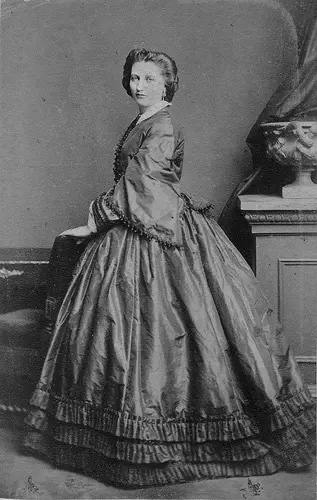These Four Trailblazers Led the Wayfor Women in the Law
This week the U.S. Senate is questioning Ketanji Brown Jackson who could become the nation’s first Black woman to sit on the U.S. Supreme Court. It’s only appropriate that her likely appointment comes during Women’s History Month, because it’s taken 153 years to get to this point. How’s that?  Because it wasn’t until 1869 that Arabella Mansfield became the nation’s first woman attorney when she was admitted to the Iowa bar. Let’s take a few minutes to recognize and celebrate some of America’s earliest trailblazing women attorneys and jurists. Arabella Mansfield: A suffragist and educator, Arabella Mansfield became the first woman attorney in the U.S. when she was admitted to the Iowa bar in 1869 — despite women not be allowed to take the exam. She challenged the rule, passed with high scores, and Iowa became the first state to allow women and minorities into its bar. Ada Kepley: Also a suffragist, and also an advocate of temperance, Ada Kepley in 1870 became the first woman to graduate from law school, earning her degree from what would become Northwestern University. She was denied admittance to the bar by state statutes, and was prohibited from practicing. She was finally admitted in 1881 but never practiced. Charlotte E. Ray: Charlotte E. Ray was the first Black American woman attorney in the nation. She was admitted to the District of Columbia bar in 1872 after graduating from Howard University and disguising her gender on the exam application by sending it in with her male classmates as “C.E. Ray.” She is also the first woman admitted to practice before the Supreme Court of the District of Columbia, and Howard’s first female legal graduate. She was also a suffragist and activist for Black women. Belva Lockwood: A suffragist and force in the Temperance movement, Belva Lockwood, in 1879 became the first woman attorney allowed to practice before the U.S. Supreme Court. It took an act of Congress. Lockwood was 43 in 1873 when she completed her degree from what is now George Washington Law School. But she was refused a diploma because of her gender, and had to appeal to President Ulysses S. Grant, who was ex officio president of the law school, to persuade the men there to grant her the law degree she earned. A former teacher – she started when she was 14 – she’d already earned an M.A. from Syracuse University in 1871. She also ran for President, being the first woman old enough to meet the office’s 35-year-old age requirement. She ran as the National Equal Rights Party’s candidate in 1884 and 1888, and was the first woman to appear on official state ballots.
Because it wasn’t until 1869 that Arabella Mansfield became the nation’s first woman attorney when she was admitted to the Iowa bar. Let’s take a few minutes to recognize and celebrate some of America’s earliest trailblazing women attorneys and jurists. Arabella Mansfield: A suffragist and educator, Arabella Mansfield became the first woman attorney in the U.S. when she was admitted to the Iowa bar in 1869 — despite women not be allowed to take the exam. She challenged the rule, passed with high scores, and Iowa became the first state to allow women and minorities into its bar. Ada Kepley: Also a suffragist, and also an advocate of temperance, Ada Kepley in 1870 became the first woman to graduate from law school, earning her degree from what would become Northwestern University. She was denied admittance to the bar by state statutes, and was prohibited from practicing. She was finally admitted in 1881 but never practiced. Charlotte E. Ray: Charlotte E. Ray was the first Black American woman attorney in the nation. She was admitted to the District of Columbia bar in 1872 after graduating from Howard University and disguising her gender on the exam application by sending it in with her male classmates as “C.E. Ray.” She is also the first woman admitted to practice before the Supreme Court of the District of Columbia, and Howard’s first female legal graduate. She was also a suffragist and activist for Black women. Belva Lockwood: A suffragist and force in the Temperance movement, Belva Lockwood, in 1879 became the first woman attorney allowed to practice before the U.S. Supreme Court. It took an act of Congress. Lockwood was 43 in 1873 when she completed her degree from what is now George Washington Law School. But she was refused a diploma because of her gender, and had to appeal to President Ulysses S. Grant, who was ex officio president of the law school, to persuade the men there to grant her the law degree she earned. A former teacher – she started when she was 14 – she’d already earned an M.A. from Syracuse University in 1871. She also ran for President, being the first woman old enough to meet the office’s 35-year-old age requirement. She ran as the National Equal Rights Party’s candidate in 1884 and 1888, and was the first woman to appear on official state ballots.